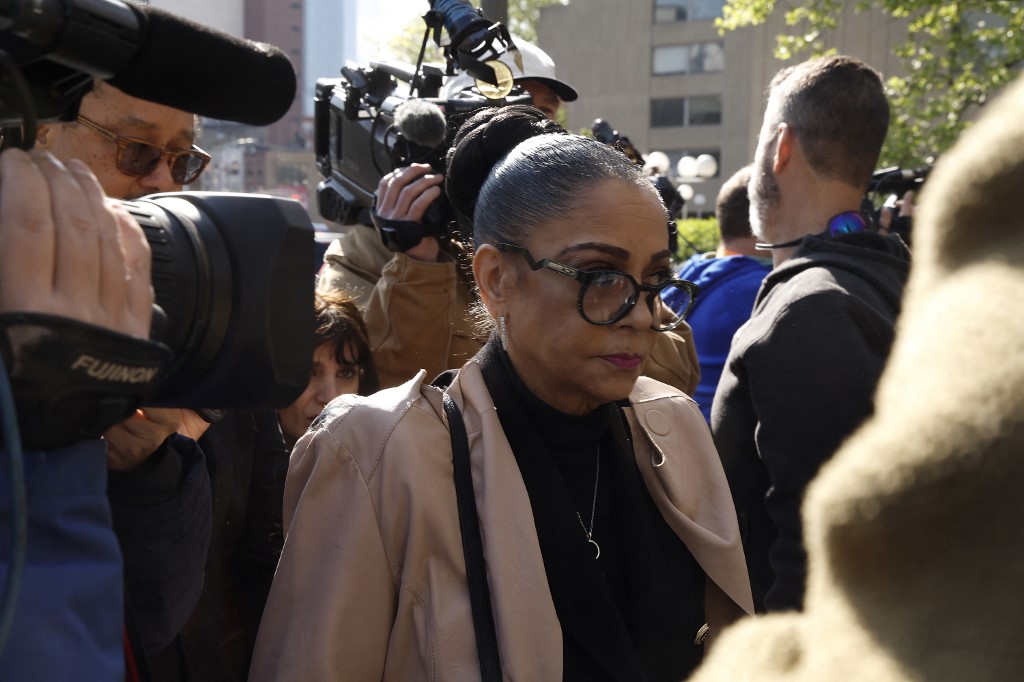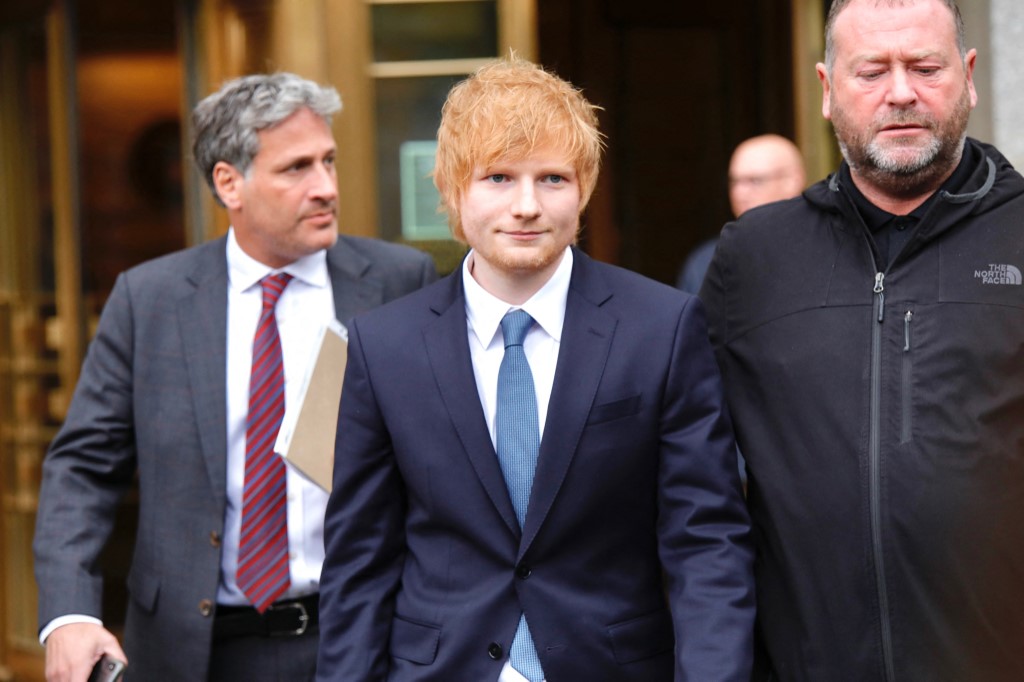Ed Sheeran copyright trial over Marvin Gaye similarities underway
Ed Sheeran arrived at US federal court Tuesday, April 25 for a trial over whether the British pop star plagiarized American music icon Marvin Gaye's Let's Get It On in his own 2014 hit Thinking Out Loud.
Industry members are closely following the copyright lawsuit as it could set a precedent for protections on songwriters' creations and open the door to legal challenges elsewhere.
It's the second trial in a year for Sheeran, who successfully testified at a London court last April in a case centered around his song Shape Of You, saying that lawsuit was emblematic of copyright litigation going too far. The judge ruled in his favor.
He arrived Tuesday at the courthouse in Manhattan silently and with his head lowered, wading past the throng of cameras and journalists stationed outside.
At issue in the New York case are alleged "striking similarities and overt common elements" between Gaye and Sheeran's songs.
During the trial, Sheeran told the court "Yes, Amy Wadge and I wrote the song Thinking Out Loud," referring to the ballad's co-author, said The New York Times, which had access to the room.
The plaintiffs are the heirs of Ed Townsend, a musician and producer who co-wrote Gaye's 1973 soul classic, who were also in court Tuesday.
"I am here for justice, protecting my father's intellectual properties," Townsend's daughter Kathryn Townsend Griffin told journalists outside the courthouse.
"As Marvin Gaye would say, 'Let's get it on,'" quipped Ben Crump, lawyer for the plaintiffs.

'Coincidence'
Sheeran's Thinking Out Loud shot up America's Billboard Hot 100 charts when it was released, and won Sheeran a Song of the Year prize at the Grammys in 2016.
Townsend's family has pointed out that the group Boyz II Men has performed mash-ups of the two songs, and that Sheeran has blended the songs together on stage as well.
Crump pointed to a 2014 fan video showing Sheeran performing a mash-up of his song and Gaye's at a concert, which the lawyer said amounted to a "confession" and a "smoking gun," according to the Times.
The lawsuit, filed in 2016—and refiled in 2017 after being rejected on procedural grounds—also names Sony.
Sheeran's team contests the allegations, saying "there are dozens if not hundreds of songs that predate and postdate" Gaye's song, "utilizing the same or similar chord progression."
"These medleys are irrelevant to any issue in the case and would be misleading [and] confuse the jury."

There has been a flood of such copyright trials in recent years, notably in 2016 when Gaye's family—who is not part of the New York lawsuit against Sheeran—successfully sued the artists Robin Thicke, Pharrell Williams, and T.I. over similarities between the song Blurred Lines and Gaye's Got to Give it Up.
They were ordered to pay some $5 million in damages, in a result that surprised many in the industry including legal experts who saw many of the musical components cited as foundational musical elements largely in the public domain.
Five years later, an appeals court decision confirmed Led Zeppelin's victory over a similar case with the classic Stairway to Heaven at issue.
But jury trials over music copyright could go any which way, and in this case likely will ultimately come down to the arrangement of a single chord progression.
A musicologist retained by the defense says in court documents that the four-chord sequence was used in a number of songs before Gaye's hit came out in 1973.
"There's only so many notes and very few chords used in pop music," Sheeran said in an Instagram video last April.
"Coincidence is bound to happen if 60,000 are being released every day on Spotify." (AFP)


